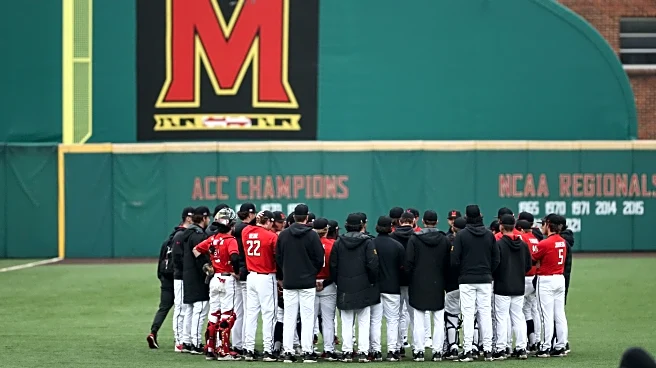What's Happening?
The U.S. Department of Agriculture has announced it will not use its $6 billion contingency fund to cover food stamp benefits for November, affecting approximately 42 million Americans who rely on the Supplemental Nutrition Assistance Program (SNAP).
This decision comes amid an ongoing government shutdown, with the USDA stating that contingency funds are not legally available to cover regular benefits. President Trump has assured that everyone will be in good shape, but did not provide specific details. The shutdown has increased pressure on Congress to resolve the impasse and agree on a federal spending package.
Why It's Important?
The decision not to use the contingency fund for SNAP benefits highlights the vulnerability of critical safety net programs during government shutdowns. SNAP is a vital source of food assistance for millions of Americans, and the lack of funding could lead to increased food insecurity and economic hardship for low-income families. The situation underscores the importance of resolving the budgetary standoff in Congress to ensure the continuity of essential services. It also raises concerns about the prioritization of government spending and the potential impact on public welfare.
What's Next?
The ongoing shutdown and the USDA's decision may prompt further negotiations in Congress, with Democrats and SNAP advocates urging the agency to reconsider its stance and utilize available funds. The situation could lead to increased political pressure on both parties to reach a compromise and end the shutdown. Additionally, states may explore alternative funding options to support SNAP recipients, although they will not be reimbursed for using their own funds.
Beyond the Headlines
The decision not to fund SNAP benefits during the shutdown raises ethical questions about the government's responsibility to protect vulnerable populations during fiscal crises. It also highlights the broader implications of political gridlock on public policy and the potential long-term effects on social welfare programs.

















